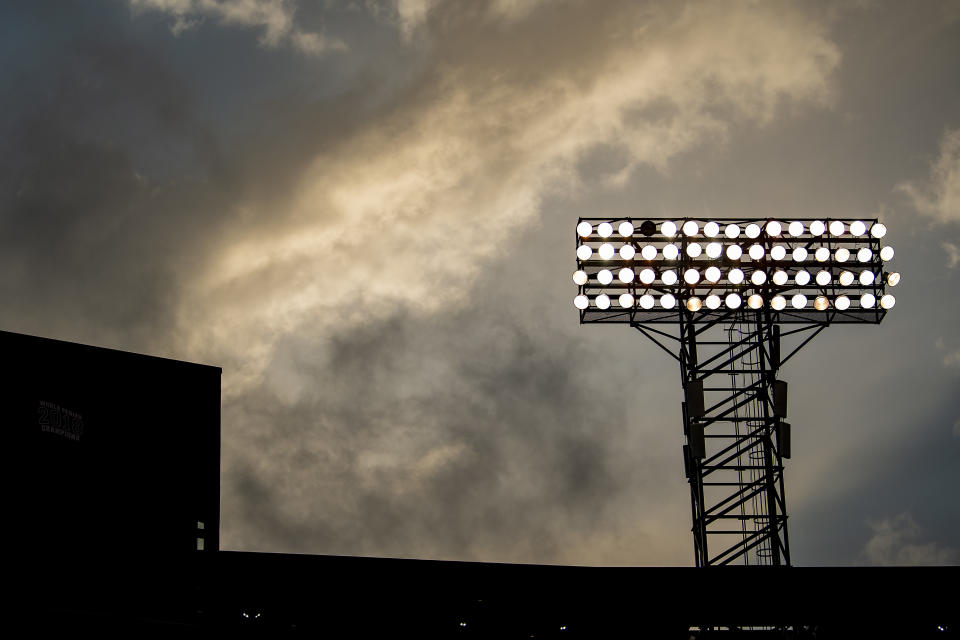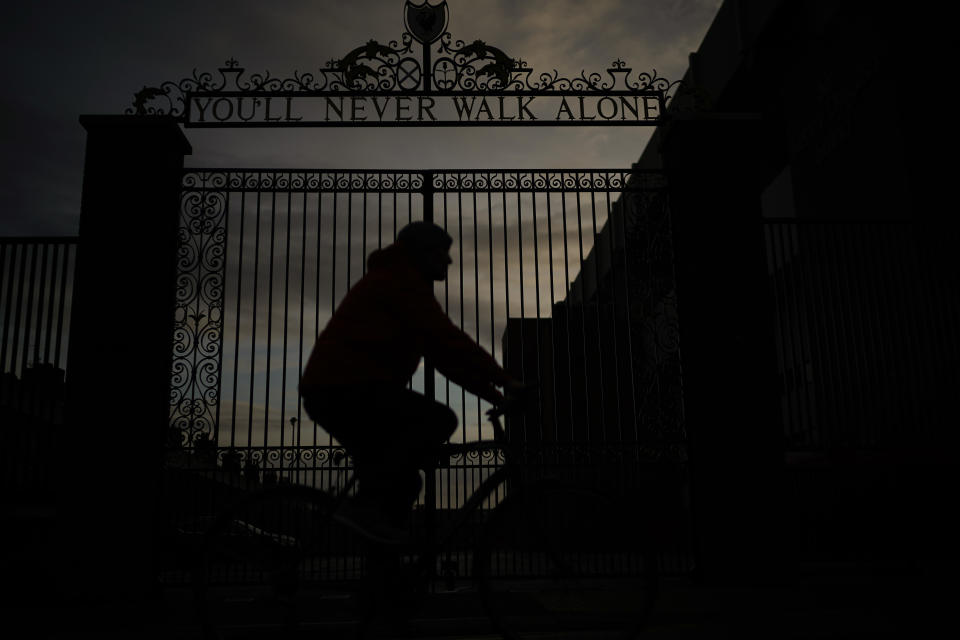What Do You Think We Will See Again in Sports

In his seminal volume "Human Ludens," the Dutch historian Johan Huizinga argues that play is boulder to culture, that a society doesn't truly become 1 until it plays games. To him, playing is what makes us a community, one of the things that binds us together equally a species.
What the world would look like without sports? We finally know the answer to the question, thanks to the coronavirus pandemic. Perhaps you'd contemplated this outlandish scenario earlier, over beers at the bar, or in a freshman philosophy class, but information technology existed only as a idea experiment placing you in some joyless, more austere world.
Every bit it turns out, in our sportsless world things are the same, but a lilliputian blander, a trivial less exciting, a piddling less vexing likewise. A lot less communal. Huizinga was right near that.
Sports still exist, of course. The teams are still there, as are the players. So are the leagues, for the most part (RIP, XFL'south 2nd attempt). It'due south live sports that are gone, for now.
Simply the realization is slowly setting in that when those sports return, if they all return, they will be inverse. At the risk of sounding like the guy who predicted that the internet would never catch on, sports as we knew them are already gone. Information technology volition never exist quite the same.

So much of what we know and love almost sports will take to be re-thought, starting with how we tin safely get together to scout them — especially when omnipresence gets bigger than, say, a Little League game.
Considering we already know that live sports are an incubator for a virus, that our games are culpable in a pandemic. We know that a February soccer game in Milan massively proliferated the COVID-19 outbreak in both Italy and Spain in a Champions League match that came to be known as "Game Nothing."
We besides know that San Francisco was probable spared a much bigger outbreak when the 49ers blew a fourth-quarter atomic number 82 in the Super Bowl, saving the city from a championship parade, saving lives.
President Trump can concur all the conference calls with sports league commissioners that he wants, but the conditions take to be correct to reopen our stadiums, or even to play without fans. That ways keeping the players and staff rubber, first of all, through intricate testing and stringent isolation — as the German Bundesliga soccer league will attempt next month — until a vaccine is found and widely administered. And and then, on a much broader scale, the safety of thousands of fans volition take to be safeguarded too.
It volition be a long time before we fifty-fifty have that capacity, and the complications that lurk therein are myriad.
But even when we get to such a signal, the consumer feel of our alive sports will exist very dissimilar.
Even in a postal service-COVID world, it's non inconceivable that stadiums volition test people for viruses when they scan their tickets. In China, some fast food and delivery services already track the torso temperatures of their workers — fifty-fifty though that ignores the threat from asymptomatic carriers. The athletes volition certainly be monitored more closely — afterwards NBA player Rudy Gobert accelerated the NBA's shutdown when he tested positive — and invasively.
Sports Tv may look different when this is all over. We could see the end of sideline interviews. Of jam-packed press conferences. Of players jumping into the stands after scoring touchdowns. Of fans waving their hands at NBA players entering and exiting the arenas for high-fives. Fob Sports may fifty-fifty have to reassess its immutable passion for seeing how many big men information technology can fit around a single punditry desk-bound on its game-day sets.

Then there's the psychological trauma — considering living through a pandemic of this magnitude will reverberate for a lot of people. Will you ever expect at a big crowd the same? Even if you recollect all of this was overblown, can y'all honestly say that you won't hesitate, even for the briefest moments, before committing to being with lots of strangers in shut quarters?
The threat of a 2d wave, which seems inevitable after this menstruum of social distancing is finally relaxed, will loom, equally volition further disruptions. It could devastate public trust in their safety at events with lots of people when they've lived through this more than once, when information technology no longer feels aberrant. Stadiums may have to be redesigned to assuage that fear.
The economical cost to sports teams and leagues volition be such that we'll reemerge to a very different-looking sports globe. Some teams won't exist there anymore when nosotros come up back. Some leagues won't. The XFL is already gone. The threat is probably greater in other countries, where the leagues aren't as centralized and socialized as ours, sharing acquirement and divvying up the financial burdens as we practise, although women's sports stateside are specially vulnerable.
The sporting landscape will be different when we come up back. The fashion we go to games will be unlike. The mode we treat our athletes; the way nosotros spotter; the manner we celebrate — all different.
The very notion that sports will get back to normal is fanciful. Normal is dead. And thus normal sports are dead. Just as 9/11 changed air travel forever, maintaining the stringent new rules that were adopted in perpetuity even after the hijacking of planes ceased to be as much of a threat, the specter of another virus outbreak will remain even later on COVID-nineteen recedes.
In sports, every bit in all else, we now live in the age of pandemics.
Leander Schaerlaeckens is a Yahoo Sports soccer columnist and a sports advice lecturer at Marist College. Follow him on Twitter @LeanderAlphabet.
More from Yahoo Sports:
-
AFC E draft needs: Patriots' first picks post-Brady
-
Trump randomly shouts out Ravens QB Jackson on Twitter
-
Vanessa Bryant honors hymeneals anniversary with Kobe
-
Golf tournament director: 'Scary' to be starting time event back
gilliardcongavoke41.blogspot.com
Source: https://sports.yahoo.com/the-coronavirus-pandemic-will-subside-but-sports-will-be-altered-forever-142507306.html
0 Response to "What Do You Think We Will See Again in Sports"
Postar um comentário